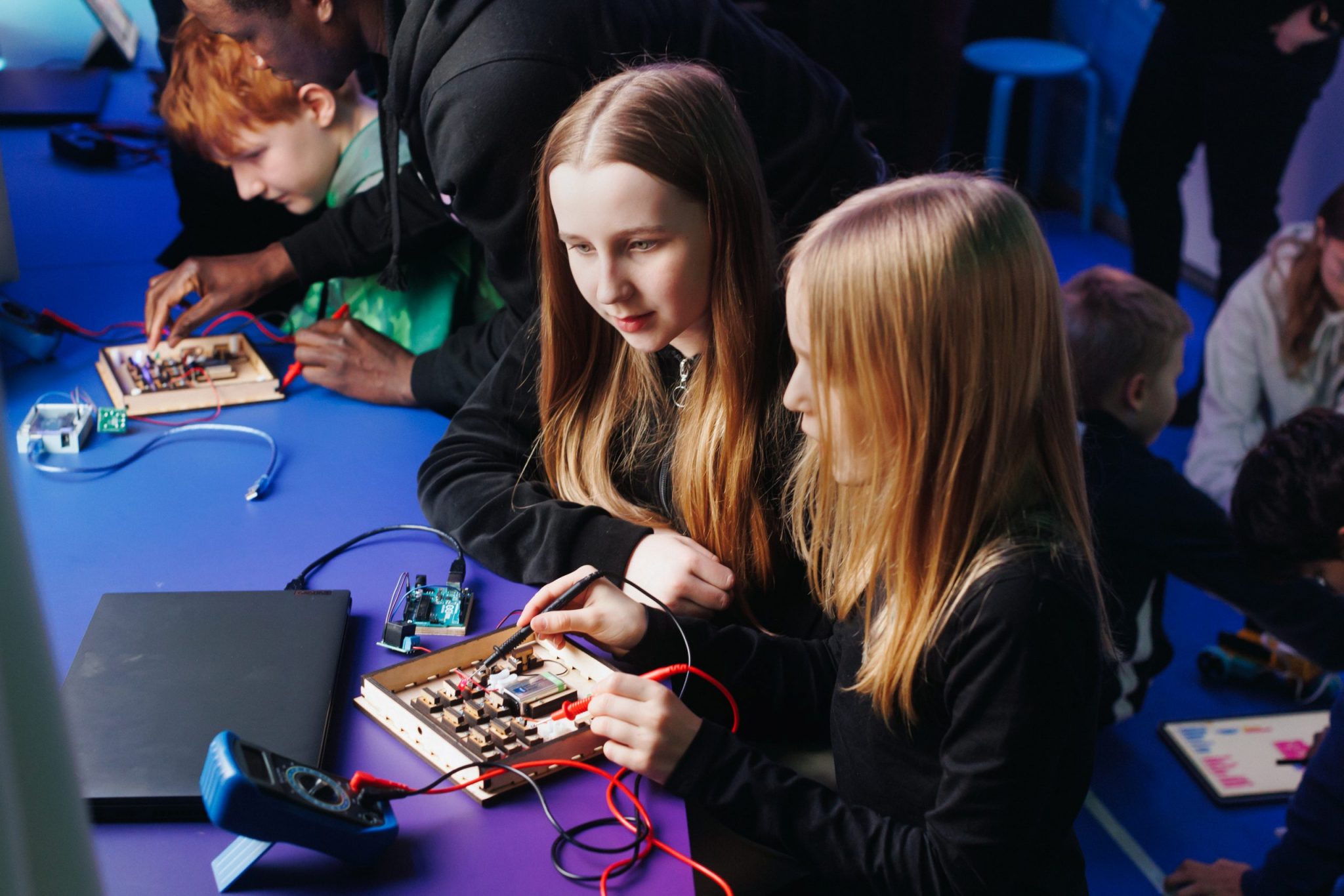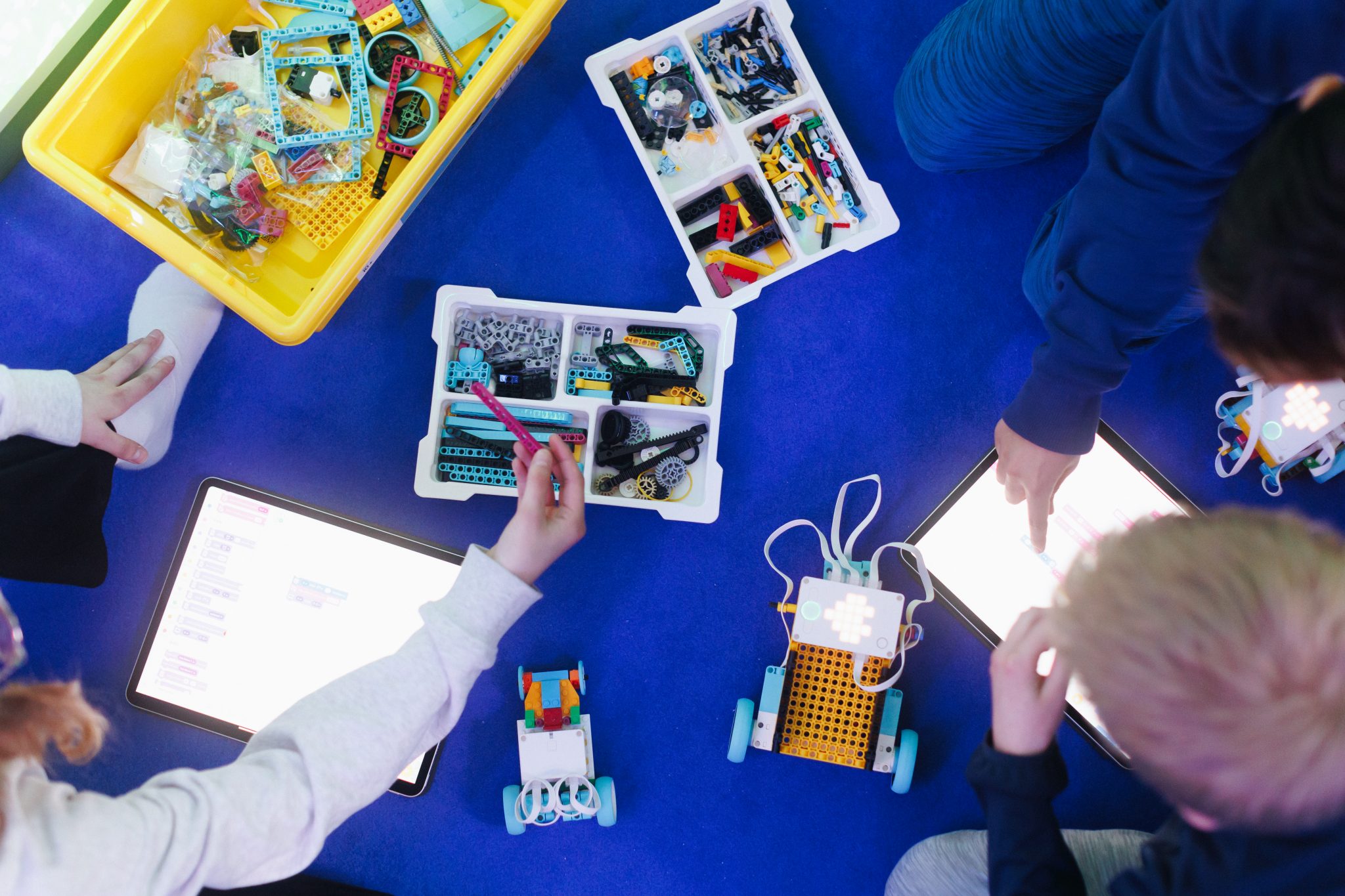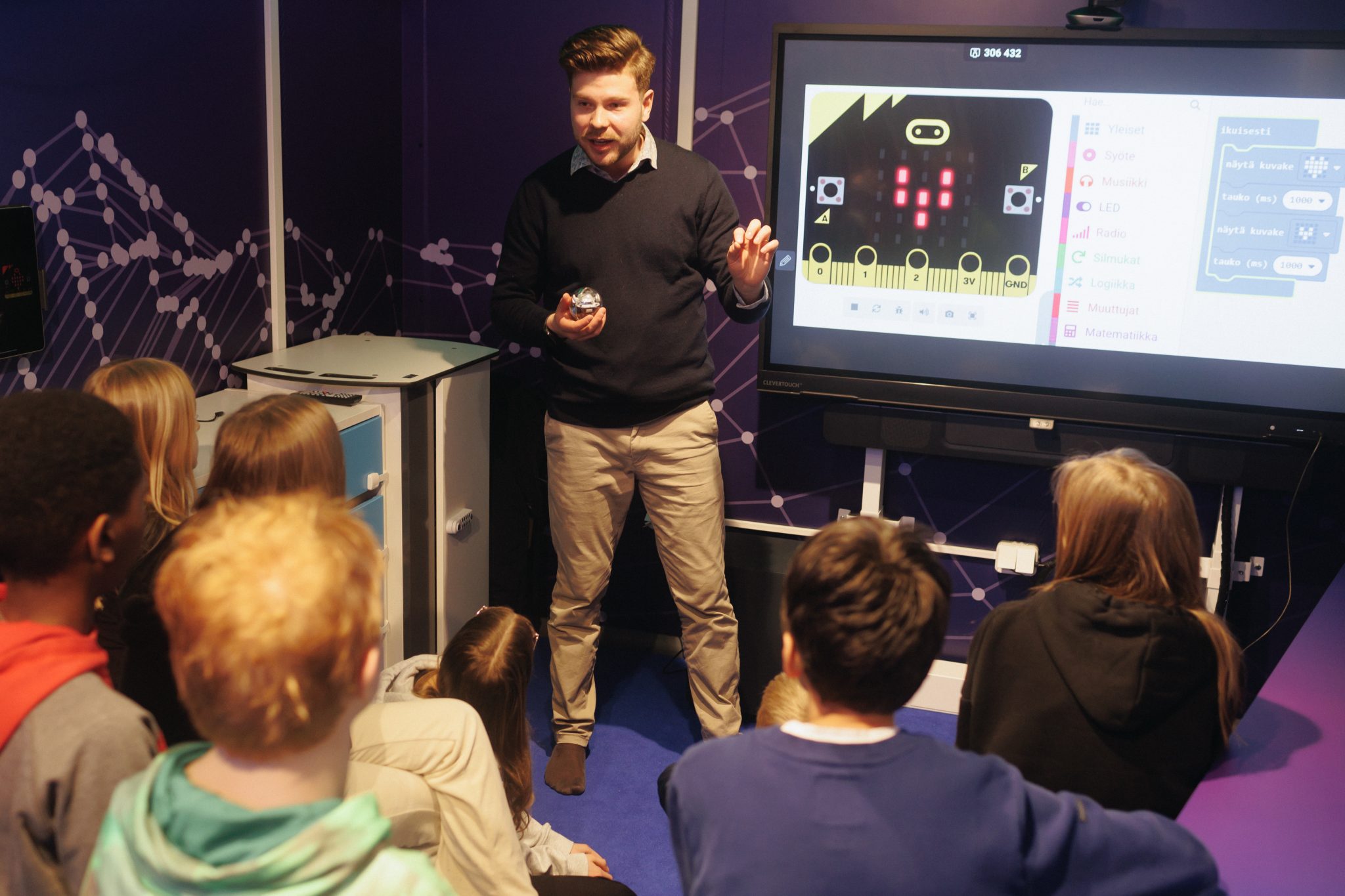Helsinki has developed a globally unique Mobile EdTech Testbed
The mobile EdTech testbed is a completely novel experimenting platform that allows companies to test and co-develop their innovations with end-users. This mobile learning environment efficiently brings intriguing new educational technologies within reach of both learners and educators, as it moves from one school, daycare, or educational institution to another.

Helsinki, known as a pioneer in collaborative EdTech experimentation and development worldwide, has created something truly unique. In the new mobile learning environment companies can test and co-develop various educational technology and learning environment solutions in collaboration with end-users. What sets Mobile Testbed apart is that it is not tied to a specific location, as it is a container. This mobility ensures, that the latest technologies are accessible to learners, and companies can tailor their products to meet the needs of a diverse user base. The mobile testbed, filled with EdTech innovations, spends a few weeks at each school before moving on to the next, allowing for dynamic experimentation and adaptation.
EdTech companies’ experiments began in Sakarinmäki
The first ones to take part in the mobile testbed activities were students from Sakarinmäki Comprehensive School in Helsinki. The companies testing their products in the container are primarily startups still in the development phase. Within the container, these companies lead workshops to test and improve their products based on user feedback. Teachers also have the opportunity to borrow educational technologies from the mobile testbed for classroom use. These experiments follow the Easy Access Co-Development (EAC) model, which promotes collaboration between schools and businesses in a lightweight, flexible, and streamlined manner.
– As we were piloting the Mobile Testbed, we were delighted to discover that our innovative experimentation model worked exactly as we had hoped. In just one day, companies can efficiently test a lot. When workshops are conducted repeatedly with different groups, the experimentation process can be rapidly improved from workshop to workshop, Project Specialist Severi Tonttila from Business Helsinki explains, and continues:
– This was the best possible pilot school. The principal and teachers of Sakarinmäki Comprehensive School welcomed the container with an open mind and without prejudice.


– A particularly positive aspect of the experimentation container is the intensive testing experience with changing student groups. When children are removed from regular classroom settings, they boldly express their opinions about innovations in this experiential space, tells Boniphace Kanyathare from Ujuzi, one of the companies participating in the experimentation container.
The Mobile Testbed also offers EdTech innovation workshops from seven other start-ups during the spring. The feedback received from teachers and students has been enthusiastic.
It has brought an educational and exciting excursion destination to even the most “remote” school in Helsinki, to our our own schoolyard! It has been fascinating to explore new technologies, and we have become aware of them. The mobile testbed provides ample material for various parts of the curriculum, and many broad skills are realized in its workshops.
– Teacher Eija Saavalainen, Sakarinmäki Comprehensive School
It’s a bit exciting and feels nice to try out new inventions among the first ones. The experimentation container has a different atmosphere, and it’s fun.
– 5th-grade student, Sakarinmäki Comprehensive School
The mobile testbed: From idea to reality
The Mobile Testbed, which has been in development for six months, is now finally on the move! The intensive development process involved constructing the container, refining the operational model, and preparing it for placement in schoolyards.
Marjo Kenttälä, the project manager, acknowledges:
– There were numerous issues to address during this process. The primary challenges included managing the containers mobility as it moved from one location to another, while also ensuring its stability at each site for several weeks.
– Logistics require sufficient yard space and safe access, while electrical supply necessitates proximity to high-voltage sources. Fire safety considerations involve maintaining distances from other buildings. Keeping the testbed in one location for weeks requires preparation for potential vandalism, and its mobility is subject to specific weight restrictions and furniture attachments, explains Kenttälä.
– However, the development work has been interesting and rewarding! The Mobil Testbed has been created through cross-sector collaboration. It’s operations would not be possible without close and effective cooperation with the Education Division. Their development services, ICT unit, and Stadin AO’s logistics sector are closely involved in implementing the Mobile Testbed. Additionally, the Urban Environment and Culture and Leisure Divisions have supported the implementation of the mobile testbed.
The mobile Testbed is part of the Resourceful Sharing: Innovative and Co-Usable Learning Environments project, which provides companies with more efficient opportunities to test and develop their products and services in collaboration with end-users. There is an ongoing call for our business-oriented experiments. The project is co-funded by the European Union.



